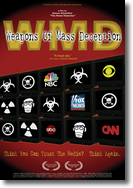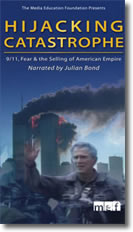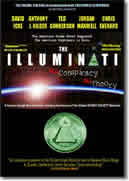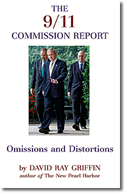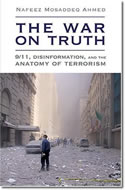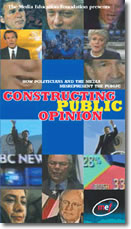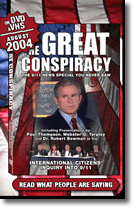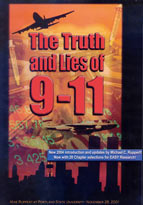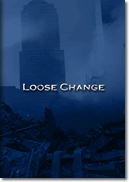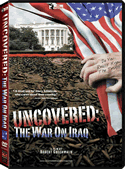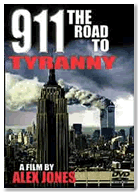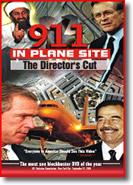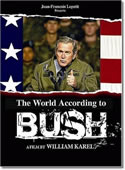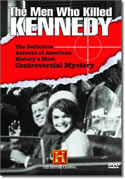|
They Are Not “Conspiracy Theories”
They Are, in Fact, “Discoveries”
Those to whom information is presented must deal with their personal unwillingness to hear new facts.
We have to make a serious effort to distinguish between the expression of an unfounded theory and the disclosure of verifiable information and facts.
They absolutely refuse to accept even the most convincing proof because they dare not admit to themselves that they have been lied to by officials in whom the placed their trust.
It is currently standard practice in America to simply dismiss any piece of information that punches a hole in any widely accepted explanation of a disturbing event. In many cases, especially when a serious crime is in question, the "conspiracy theory" tag is immediately attached to any new discovery about the event. Information related to such important topics such as 9/11, election fraud, the new world order, secret societies, or globalization is too often ignored as part of a baseless conspiracy theory even before any of it is ever presented, discussed, or evaluated.
There seems to be no set criteria for dismissing information as a foolish conspiracy theory. The only prerequisite for information to be so categorized seems to be the desire to reject it. The reason for the rejection does not seem to matter. It appears that anything people do not want to believe is simply set aside as not believable. It almost seems that if you set some people of fire they would dismiss the flames as non-existent, simply because they did not want to believe what was happening. The pain and damage done by the fire, no matter how devastating, would not be evidence enough to convince these people that the fire was real. Their need to believe otherwise would win out. In the same vein, people dismiss information and apply the conspiracy theory tag to anything they chose to disbelieve at their own discretion, regardless of any hard evidence that accompanies the "theory."
It's time to put an end to this nonsense once and for all. It's also time dispense with the name calling and understand the dynamics of what is happening when new information is rejected. We have to deal with the resistance to any tampering with accepted "truths." And we have to find ways to convince people to seriously consider the new information, new discoveries if you will - that so many refuse, under any circumstances, to acknowledge.
It is absolutely accurate to say that conspiracies exist all around us every day of our lives and and in all walks of life Conspiracies are a very common part of life. Children conspire to play jokes on their friends, football teams conspire (in the huddle) to outmaneuver their opponents; the rich conspire with one another to get richer and governments conspire about virtually everything. As a matter of fact every single person who has ever been convicted of a crime by a jury is the subject of a conspiracy theory; only in these cases a jury has accepted the theory as truth after seeing the evidence. Any time two or more people are involved in setting private plans to do anything, you have a conspiracy. And every single time you have a powerful government, you have secret organizations conspiring to remain secret. Conspiracies, by definition are shrouded in secrecy. In turn, their secrecy begets speculation and that speculation spawns new theories about the conspiracy itself. .Is there any wonder that theories arise about things we do not fully understand and events we find suspicious? In the end, theories are inevitable. Truths, however, are essential.
It is perfectly acceptable for curious parties to evaluate or theorize about conspiracies. It is natural to assume that conspiracies take place and it is perfectly understandable for people to speculate on potential or known conspiracies. Trying to figure out what trades your favorite baseball team might make is a perfect example of this. The team is conspiring to make changes and you are theorizing about the changes. There is nothing wrong with that. Strangely, when you call your local sports radio show to speculate on the trade, no one will call you a conspiracy theorist, despite the fact that the name does apply. By speculating about the secret plans of others, you actually are expressing a theory about their conspiracy.
Conspiracy "theories" are just that; theories. Theories are based on a logical or a reasonable theses that take known information into account and draw a conclusion based on those known facts. Theories, in essence, are educated guesses, and conspiracy theories are educated guesses about conspiracies people perceive around them. The sinister nature of conspiracy theories, then, is totally undeserved.
When new facts are brought out about controversial issues, something strange happens. Minds close and battle stations are taken. A confusion arises between unfounded theories and actual facts, discoveries, clues or evidence that may or may not support existing beliefs about those issues. We have to make a serious effort to distinguish between the expression of an unfounded theory and the disclosure of verifiable information and facts.
Today there is an ongoing battle between those in possession of newly discovered information and those who do not want to even consider the validity of that information. Real evidence and factual information are being lumped with baseless theories. This is not always the fault of the person to whom the information is presented. In many cases, the presenters offer unpopular conclusions too quickly that alienate their audience. This is often the case when new information about the events of 9/11 are revealed. When people are involved in discussions about the attacks, they are prone to dismiss verifiable evidence because they are offended or distressed by greater ramifications that arise. . This is both unproductive and dangerous. Information has to be examined and evaluated, regardless of its wider implication. That is the responsibility of the recipient. But there has to be a way to clearly present valid, tangible, verifiable and often undisputed information so that it is more readily accepted. That responsibility belongs to the presenter, who must deal with facts rather than conclusions.
Another thing to keep in mind is the possibility that a simple discovery can disprove a great deal of what is previously accepted as truth. At the same time, however, it may not completely prove the validity of an alternative theory. It only proves that an existing belief is wrong. This is the case regarding the mountains of evidence uncovered by the independent 9/11 researchers. What they have discovered easily disproves the official version of the events and the Kean Commission findings. What it does not prove conclusively is what actually took place.
There is also another factor to deal with when dealing with the truths, half truths, and lies that surround events not clearly resolved in the minds of the public. Holding on to half truths is often easier than accepting that one has been fed a truckload of lies in the first place. Suffice it to say there is a large segment of the American population that continues to dismiss every one of the verifiable findings of the independent 9/11 research community. They absolutely refuse to accept even the most convincing proof because they dare not admit to themselves that they have been lied to by officials in whom the placed their trust. Betrayal by those who lead the country they love is simply too painful to accept. Denial is too often the best defense of the deceived.
My own venture into educating the public about media deception has led me into a world of information that has been hidden from the public. Actually, it is not completely hidden, but it surely can not be found in the mainstream media. If we use Iraq as an example, even the most rudimentary research into the history of the first Gulf War will uncover a reality that is very different from the common folklore. When I bring up issues regarding the first Bush administration and Iraq, such as the hiring of a PR firm to lie to Congress about atrocities committed by the Iraqis in order to garner support for war, people immediately tag my information as my conspiracy theory. In part, they are correct. There was a conspiracy, but it was not mine. And there was no theory, there was only truth... The account is factual, it really happened and it was a conspiracy to lie to the Congress and the nation. Fortunately, this particular issue is verifiable. It is also no longer denied. Sadly, like so much people should know, these events are destined to remain in the dustbin of history, thanks to our mass media. And it might explain why I, along with many other people, are working hard to bring the truth to the people.
When researchers, history buffs, truth seekers, conspiracy nuts or whatever you want to call us, present newly discovered, yet verifiable information to the public, we are directly attacked as promoters of a conspiracy theory and lambasted with the usual assortment of insults. . This is totally unacceptable. We can no longer allow the conspiracy theory tag to be indiscriminately used whenever anyone has new discoveries to reveal. There has to be a concerted effort to clarify the goals of those with information to impart. Presenting new evidence can not be perceived as an attempt to establish a forgone conclusion. At the same time, new information must be dealt with in isolation of any other ramifications or another resistance relating to its possible reality.
9/11 remains the perfect example with which to illustrate my concerns. A massive amount of valid evidence exists to show that elements of the official story (itself a conspiracy theory because it is not verifiable), are false. It is not possible, however. to use the newly discovered evidence as the basis for a conclusion about what actually happened and who was responsible. At least not yet. There are many indications, and there is a long trail of evidence suggesting US government complicity, but that is all there is. That much is a theory, but the evidence itself is comprised of facts. That evidence can not be dismissed simply because the theories that are wrapped around them are inconclusive. The proverbial baby cannot be thrown out with the bath water.
In conclusion, let me summarize two "conspiracy theory" problems that must be dealt with:
- Those who opt to disclose new discoveries must clearly separate the theoretical elements of their presentation from the information they disclose.
- Those to whom information is presented must deal with their personal unwillingness to hear new facts. They must become more receptive to new evidence and avoid dismissing verifiable evidence simply because the ramifications are distressing or difficult to conceive.
We have to discourage the misuse of language that wrongly labels and categorizes people with information to share. Hostile or incorrect terminology only serves to interfere with our mutual and communal education. It is vital that we examine evidence and discoveries for what they are. We must be careful not to expand evidence beyond its empirical reality. Facts must not be confused with folklore, but must be presented within the limits of their validity. By doing this, we may convince the skeptics among us to listen with less resistance and to end the practice of dismissing evidence solely because it disproves their initial beliefs. If we deal effectively with these obstacles, we all may become better informed about the things we need to know. And perhaps one day we will come to know the reality that continues to evade us to this day.
Jesse - Editor, TvNewsLIES.org
WHY AMERICANS REFUSE TO BELIEVE THE 9/11 EVIDENCE!!! - The attacks of 9/11 were so unthinkable that most Americans would refuse to believe the complicity of their own government, even if presented with a mountain of evidence. - Very simply, it is possible to escape blame if you do something that nobody in the world believes you could do.
|


